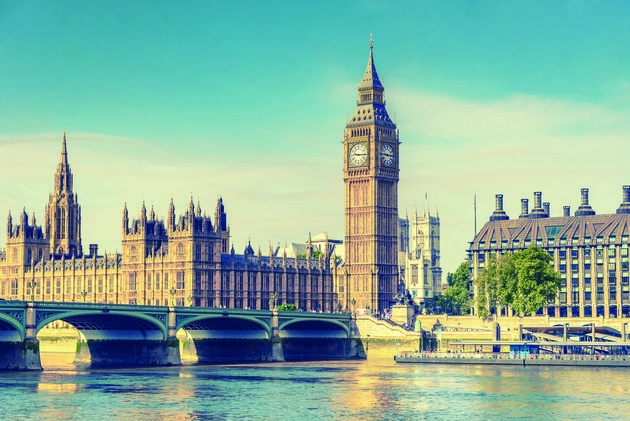
‘Missed opportunity’ for businesses via Spring Statement
The trade has expressed its disappointment that no relief for businesses will be forthcoming via Rachel Reeves’ Spring Statement, as the industry continues to face a roster of tax hikes from the last Autumn Budget.
Costs are set to continue to rise and a difficult economic outlook is forecast following yesterday’s (26 March) address to the Commons, which saw no significant change to major tax plans announced in October 2024. This included an increase in employer National Insurance contributions to 15% above £5,000 per annum and an above-inflation increase in the minimum wage to £12.21.
With inflation set to rise faster than expected this year, industry bodies such as the Fed (the Federation of Independent Retailers) are now calling call on the Chancellor to reduce costs.
The Fed’s national president, Mo Razzaq, said he is “greatly concerned about impending higher costs from increases in employer National Insurance contributions and above-inflation increases in the National Living Wage due in the coming days when the new financial year starts in April”.
Meanwhile, Colin Wilkinson, MD of the SLTA (Scottish Licensed Trade Association), highlighted how the hope of respite in the 2025 Spring Statement has disappeared following the shockwaves caused by the October Budget.
He said the trade is still coming to terms with the Chancellor’s “short-term pain, long-term gain” Autumn 2024 Budget and has braced for the triple whammy of an increase in the National Living Wage, increased employer National Insurance contributions and a 50% reduction in the threshold level for employer National Insurance contributions from April, which he called “nothing more than a tax on jobs”.
He continued: “There is nothing for the hospitality industry in the Spring Statement and our fear is that many businesses will be forced to restrict investment and growth as well as face the risk of job losses as the changes from April make many operators question if they are in a position to maintain current staffing levels.”
Yesterday, the Chancellor doubled down on her fiscal strategy for Britain, stating that the government would not step back in during a time of economic instability and uncertainty worldwide. Instead, she said it would “step up by helping Britain to reach its potential… and deliver prosperity for working people”, adding that the fiscal rules she set out in October were “non-negotiable”.
She vowed to balance government spending by 2029/2030, pointing to OBR forecasts that her investment rule will be met two years early. Net financial debt is forecast to be 82.9% of GDP in 2025-26 and 83.5% in 2026-27, before falling to 82.7% in 2029-30.
She also addressed the concerning statistic that one in eight young people are not in employment, education or training. “We will not stand of it. We will change it,” she told the house.
In his rebuttal, Shadow Chancellor Mel Stride told the Commons that the UK is “poorer and weaker” than it was a year ago. He accused the Chancellor of reneging on promises not to increase borrowing or put up National Insurance, while pointing out that individuals and businesses are “buckling” under the weight of ever-increasing taxes.
“Even a basic economist knows that if you tax something, you make less from it. So what did she do? Tax employment and wealth creation, the backbone of our economy,” he said.
He also made reference to the recent job losses in the UK’s multiple retailer sector. In recent weeks, Morrisons has announced it will axe 200 members of staff, while Sainsbury’s is undergoing plans to cut 3,000 jobs as it shuts down its remaining cafés.
“Outside of the pandemic, business confidence is now the lowest on record,” Stride said.
UKHospitality joined the chorus by condemning the lack of a clear growth plan for hospitality, which continues to put high street jobs at risk.
Chief executive Kate Nicholls called for a delay to the changes to employer NICs and for the government to work with the sector to bring forward a plan for the high street that “can deliver socially productive growth and opportunities to get people back into work”.
She added: “Growth won’t just happen without a plan. Yesterday’s statement was yet another missed opportunity to avoid an April cliff edge which will level a devastating £3.4 billion annual increase to the sector’s tax bill.
“The government’s own analysis shows the failure to address the employer NICs threshold will force businesses to freeze recruitment, reduce hours available for staff and reduce employment levels in the very sectors the government needs to achieve its goal to get people off welfare.”
Nicola Bates, CEO of WineGB, added her disappointment on behalf on the English and Welsh wine industry.
She said: “We are disappointed in the halving of growth projections in the Spring Statement and what this means for consumer confidence.
“The UK wine sector needs support to grow in order to become the world’s next great wine region. There remains a requirement for financial support to take advantage of our position as the UK’s fastest growing agricultural sector, bringing money and skilled jobs into the countryside.”
Keywords:
- tax
- economy
- hospitality
- Inflation
- chancellor
- Autumn Budget
- increased costs
- Rachel Reeves
- Spring Statement





